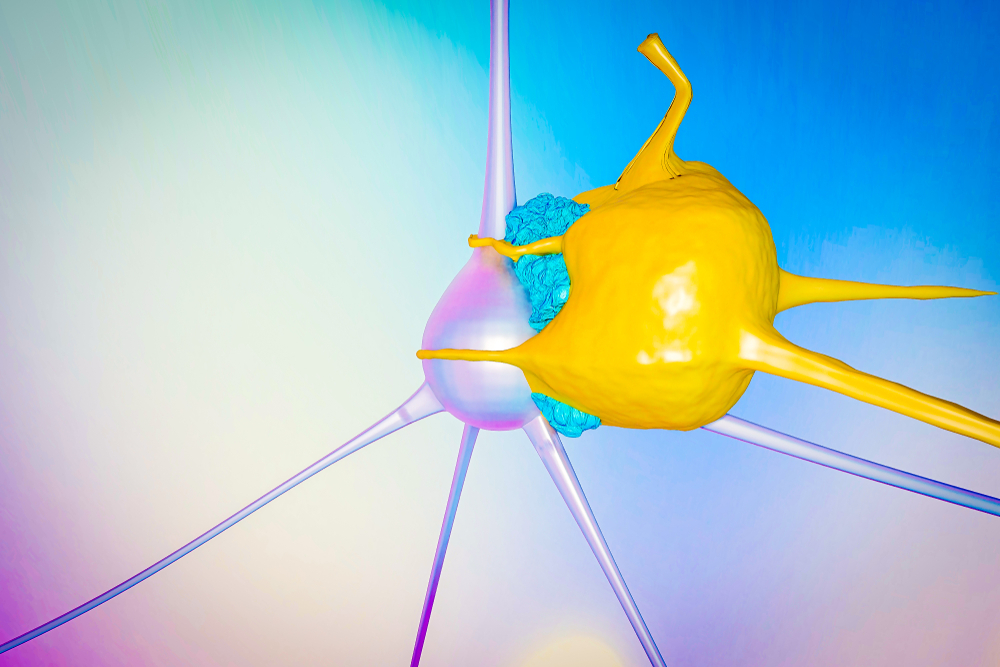-
Mayo Clinic researchers identify new strategies that may improve CAR-T cell therapy

SAN DIEGO — Mayo Clinic researchers have developed two new strategies that may improve the performance of chimeric antigen receptor therapy (CAR-T cell therapy) in treating cancer. They are presenting results of their preclinical research at the 2018 annual meeting of the American Society of Hematology in San Diego.
Reducing toxicity in CAR-T cell therapy
“While CAR-T cell therapy has proven successful in treating certain cancers, severe toxicities have limited its widespread application,” says Rosalie Sterner, an M.D.-Ph.D. student working in the T Cell Engineering Laboratory of Saad Kenderian, M.B. Ch.B., a Mayo Clinic hematologist. Sterner says toxicities associated with CAR-T cell therapy include cytokine release syndrome, in which patients can experience fever, nausea, headache, rash, rapid heartbeat, low blood pressure, and difficulty breathing and neurotoxicity.
Sterner says some patients undergoing CAR-T cell therapy get sick during treatment and require a stay in an ICU. She also notes that deaths related to the side effects of CAR-T cell therapy have been reported. Sterner and her colleagues developed a strategy to reduce the severe toxicities associated with CAR-T cell therapy.
The strategy involves blocking the GM-CSF protein, which is produced by CAR-T cells and other cells using a clinical-grade antibody (lenzilumab).
“When we blocked the GM-CSF protein, we found that we could reduce toxicities in preclinical models, says Sterner. “We also were able to demonstrate that CAR-T cells worked better after the GM-CSF protein was blocked.”
Next, researchers used a gene editing technology, called CRISPR, to generate CAR-T cells that did not secrete the GM-CSF protein. Sterner says these modified CART cells were more effective than regular CAR-T cells.
Based on their findings, the research team is proceeding with a phase II clinical trial of the GM-CSF blocking antibody during CAR-T cell therapy. If the trial results are consistent with earlier findings, the therapy could become a standard of care during CAR-T cell therapy at Mayo Clinic.
This research also is published in Blood.
Improving response rates for CAR-T cell therapy in B cell lymphoma
“In CAR-T cell therapy, physicians remove and modify a patient’s T cells to recognize and fight cancer,” says Reona Sakemura, M.D., Ph.D., a hematologist and a postdoctoral fellow in Dr. Kenderian’s laboratory. “Once modified T cells are reinfused into the patient where they seek out and ultimately kill cancer cells.”
Dr. Sakemura says response rates for CAR-T cell therapy vary by disease. For example, in B cell acute lymphoblastic leukemia, response rates of more 90 percent have been seen, compared to response rates of 10 to 30 percent for treatment with conventional chemotherapy. In other blood cancers, such as lymphoma and chronic lymphocytic leukemia, the response rates for treatment with CAR-T cell therapy remain low.
To improve the effectiveness of CAR-T cell therapy in these cancers, Dr. Sakemura and his colleagues developed a strategy to combine CAR-T cell therapy with a drug that targets a protein called "AXL." This protein is present on the cancer and within the cancer’s environment. The drug, called "TP-0903," not only kills cancer cells, but also it enhances the potency of CAR-T cells in attacking cancer cells and potentially lowers the toxicity associated with CAR-T cell treatment.
While more research and clinical trials are needed, Dr. Sakemura says, “We believe the latter effect may eventually be utilized as an innovative approach to augment the efficacy of CAR-T cell therapy and extend its use to other B cell cancers.”
###
About Mayo Clinic Cancer Center
As a leading institution funded by the National Cancer Institute, Mayo Clinic Cancer Center conducts basic, clinical and population science research, translating discoveries into improved methods for prevention, diagnosis, prognosis and therapy. For information on cancer clinical trials, call the Clinical Trials Referral Office at 1-855-776-0015 (toll-free).
About Mayo Clinic
Mayo Clinic is a nonprofit organization committed to clinical practice, education and research, providing expert, comprehensive care to everyone who needs healing. Learn more about Mayo Clinic. Visit the Mayo Clinic News Network.
Media contact:
- Joe Dangor, Mayo Clinic Public Affairs, 507-284-5005, newsbureau@mayo.edu







